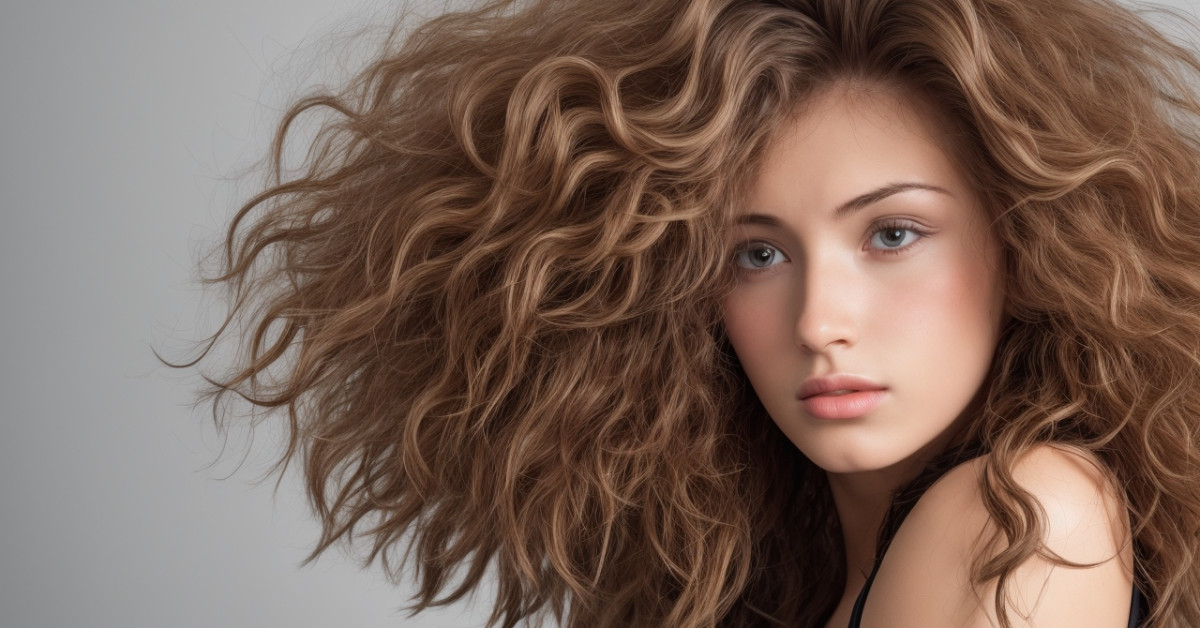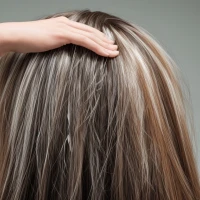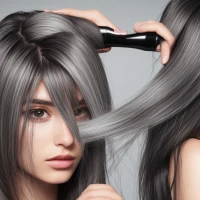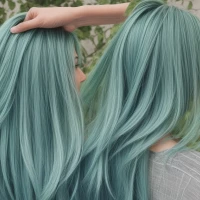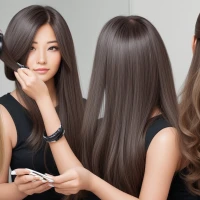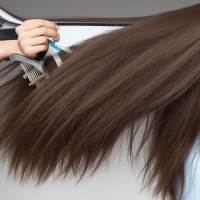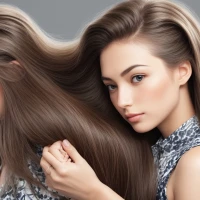Dry and stiff hair can often leave us puzzled and frustrated, especially when we try to comb through our tresses and find ourselves navigating through a forest of tangles and frizz. The quest for soft, silky hair is ongoing, but to achieve it, we must first understand the factors contributing to our lackluster locks. In this comprehensive guide, we dive into the myriad reasons your hair might be feeling more like straw than silk and outline actionable strategies to infuse your strands with life and luster once again.
Understanding the Underlying Causes of Dry Hair
The texture of your hair is influenced by a variety of factors, ranging from environmental elements to personal health and grooming habits. To address dry and stiff hair effectively, it’s essential to identify the root causes. Here, we explore the most common culprits behind hair that’s lost its softness and flexibility.
Genetics and Hair Texture
Your genes play a crucial role in determining your hair’s natural texture and hydration level. While genetics can’t be changed, understanding them can help you choose the right care routine for your specific hair type.
Related article; Everything You Need to Know About Acrylic Nails
Hormonal Changes and Hair Health
Hormonal fluctuations can impact the oil production in your scalp, leading to changes in hair moisture levels. This can happen during puberty, pregnancy, menopause, or as a result of certain medications.
Related article; Barbers vs. Hairdressers: What’s the Difference?
Environmental Stressors Damaging Your Hair
- Climate and Weather: Extreme temperatures, whether it’s the scorching sun or biting cold, can sap moisture from your hair, leaving it dry and brittle.
- Harsh Water Quality: Hard water containing a high mineral content can leave a residue on your hair, contributing to stiffness and dullness.
- Air Pollution: Pollutants can adhere to the hair shaft, causing damage and dehydration.
The Impact of UV Exposure on Hair
Just like your skin, your hair is susceptible to damage from UV rays. Overexposure to the sun can weaken your hair’s protein structure and strip away moisture.
Related article; Nail Trends To Level Up Your Manicure in
Grooming Habits Leading to Dryness
Overwashing and Harsh Shampoos
Frequent washing or using shampoos that are too harsh for your hair type can strip the scalp of its natural oils, leading to dryness and stiffness. Balancing cleanse and hydration is key.
Related article; A Professional Skin Consultation is Ideal for Optimal Skincare
The Effects of Heat Styling Tools
Blow dryers, flat irons, and curling wands, especially on high heat settings, can damage the hair cuticle. When the protective layer is compromised, hair becomes dry and brittle.
Related article; A Guide to Opening and Operating a Salon
Chemical Treatments and Hair Damage
Coloring, perming, or relaxing your hair introduces chemicals that open up the hair cuticle. Over time, these treatments can lead to significant moisture loss and structural damage.
Related article; When Should You Raise Your Rate?
Nourishing Dry, Stiff Hair Back to Health
Replenishing lost moisture and protecting against further damage are essential in transforming your dry, stiff hair into silky, manageable strands. Let’s explore targeted solutions for each underlying cause.
Related article; How to Improve Engagement through Tagging on Social Media
Customizing Your Hair Care Routine to Your Hair Type
Adjust Your Washing Schedule: Finding the right frequency of washing — perhaps switching to gentler, sulfate-free shampoos — can help maintain the hair’s natural oils.
Selecting Conditioners and Deep Treatments
Deep conditioning treatments or masks, used weekly, can penetrate the hair shaft and restore elasticity and moisture from within.
Related article; Essential Barber Marketing Skills All Barbers Should Have
Shielding Hair from Environmental Damage
Capturing Moisture in Dry Climates
Using leave-in conditioners and hydrating sprays can help lock moisture in during dry or cold seasons. Opt for formulas that contain ingredients like hyaluronic acid or glycerin for maximum hydration.
Filtering Your Water
Consider installing a shower filter to combat the effects of hard water and prevent mineral buildup on the hair.
Styling Without Sacrificing Softness
Dial Down the Heat
Lowering the temperature on your styling tools and utilizing heat protectant sprays can mitigate damage from heat styling.
Reversing Chemical Treatment Damage
Embrace Your Natural Texture
Taking a break from chemical treatments allows your hair to recover. During this time, focus on nurturing your hair with reparative treatments infused with proteins and natural oils.
Tackling Specific Trouble Areas for Comprehensive Care
Scalp Health: Where Healthy Hair Begins
Nourish the Scalp: Treat your scalp to exfoliating scrubs and soothing oils to ensure it remains healthy and capable of supporting strong, hydrated hair.
Hair Ends Need Extra Attention
Split ends and breakage are signs of damaged, dry hair. Regular trims and the use of serums or oils specifically designed for the ends can prevent further damage.
Boosting Hair Resilience
A Diet Rich in Hair-Healthy Nutrients: A balanced diet with plenty of vitamins, minerals, and omega-3 fatty acids can bolster hair strength and shine from within.
Supplements: A Helping Hand
While a good diet is paramount, supplements like biotin or silica can provide additional support for those looking to enhance the health of their hair.
Lifestyle Adjustments for Lasting Results
Implementing small changes in your daily life can have a significant impact on your hair’s health.
The Power of Sleep and Stress Management
Obtaining sufficient rest and managing stress effectively can positively influence your hair’s condition, as stress can disrupt the hair growth cycle and lead to dryness.
Protecting Your Hair While You Sleep
Switch to a silk or satin pillowcase to reduce friction and prevent moisture loss from your hair while you sleep.
Conclusion: The Path to Silky, Soft Tresses
Dry and stiff hair may be a challenge, but it’s not insurmountable. With the right knowledge and a tailored care strategy, you can nurture your hair back to its optimal health. Remember that patience and consistency are vital; nurture your hair, and over time, you’ll unlock the secrets to silky locks that reflect your commitment to comprehensive care. Your journey to smooth, lustrous hair begins with understanding the root causes and continues through dedicated practice of these nourishing tips and techniques. Embrace your hair’s unique qualities, protect it from damage, and celebrate each step toward achieving the enviable shine and softness you deserve.
